Current Scholars
2022-2023 ARCS Minnesota Current Scholars
The Minnesota Chapter of ARCS Foundation supports scholars from the University of Minnesota. All are selected by their respective departments and meet ARCS Foundation’s high standards of academic excellence.
ARCS Foundation Scholar Awards are presented each fall, and provide Scholars with $5,000 per year, for two years.
Introducing the ARCS Foundation MN Chapter Scholars
Our current Scholars span six different departments at the University of Minnesota: Biochemistry, Molecular Biology, and Biophysics (BMBB); Biomedical Engineering (BME); Mechanical Engineering, Civil (Mech E); Civil, Environmental, and Geo-Engineering (CEGE); Computer Science & Engineering (CSE); Neuroscience; aand Immunology.
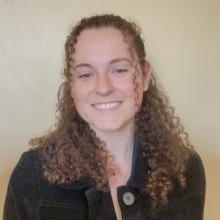
I am pursuing a PhD in the Biomedical Engineering Department of the University of Minnesota in the lab of Professor Kyoko Yoshida. I am interested in modeling and characterizing uterine artery mechanics, function, and material properties at multiple length scales during pregnancy. Many arteries in the maternal body grow, dilate, and soften to decrease resistance and increase blood flow to the placenta and fetus. If this process is interfered with, pathological pregnancy conditions such as intrauterine growth restriction and pre-eclampsia can occur. My work focuses on researching how mechanical and hormonal cues interact to drive these changes, and how we can develop non-invasive computational modeling tools to simulate what happens to tissue during pregnancy.
Maternal mortality is going up in the U.S., and approximately 1/10 pregnancies are affected by pregnancy. Because pregnancy has been so understudied historically, my research will help us understand how arteries grow and remodel and develop tools to predict relevant pregnancy outcomes based on maternal characteristics. Eventually, this research can even help with the development of therapies to treat conditions such as pre-eclampsia and intrauterine growth restriction.
My goal is a career in teaching the next generation of scientists on the front lines of medical innovation. I hope to start my own lab centered around engineering topics in reproductive health.
I expect to put my ARCS Scholar Award towards grad school necessities like a laptop for advanced computational work, transportation to and from campus, and travel to and from conferences.
I am originally from Florida’s Space Coast where my wonderful mother, father, and sister currently live. I received a B.S. in Biomedical Engineering from Florida State University
Outside of the lab I am involved with Graduate Women in BME, Creating Inclusive Cohorts, and DEI Alliance. In my free time I enjoy reading and writing fiction, roller blading, biking, and listening to metal music.
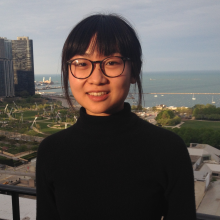
I am a PhD candidate in the Department of Computer Science at the University of Minnesota. I work in the lab of Lana Yarosh, Evan Suma Rosenberg. I have B.S. in Computer Science from University of Chicago and a M.S. in Computer Science from National Tsing Hua University.
My research focuses on designing emerging technologies (e.g., virtual reality, novel interactive systems) and leveraging their capabilities to improve the quality of human personal relationships. The majority of current-day technology focuses on improving task and work efficiency, while the quality of personal relationships which are crucial elements of our lives may decline due to neglect of social bonds in the design of technology-mediated interactions.
My work provides the perspective that technology advancements also have meaningful use to improve seemingly deep and intangible elements of interpersonal relationships, such as by enabling new ways for people to fundamentally reflect on their social relationships and providing tools that enrich online social interactions.
The goal of my work is to benefit society through creating, demonstrating, and assessing new ways for technology systems to support human relationships, such as families and friendships.
This award will help me pay for my basic life necessities, such as rent and food. It will improve my quality of life immensely and allow me to mentally focus on my research goals.
My career objectives are to continue generating research on technology for social well-being that is valuable to society, and to provide to budding researchers a mentorship which can promote their development.
I enjoy learning about other cultures and spend much of my free time reading world literature and graphic novels. I am familiar with languages other than English, such as Mandarin Chinese, Spanish, and Japanese (in decreasing order of fluency). I also enjoy drawing and listening to different types of music.
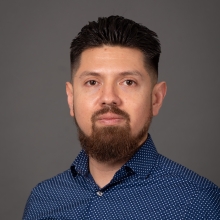
I am a PhD candidate in the Department of Neuroscience at the University of Minnesota. I work in the lab of Thomas Bastian. I have A.A. from Fullerton Community College, a B.S. from California State University, Fullerton, and a Master in Biological Sciences (MBS) from the University of Minnesota.
Iron deficiency is the most common micronutrient deficiency in the world and when acquired in early-life, it is a risk factor for long-term neurodevelopment and neuropsychiatric conditions (e.g. ADHD, schizophrenia) and these persistent neurological disruptions occur despite prompt iron treatment. The newborn human brain undergoes rapid development from the end of third trimester to the first 2 years of life, thus requiring much energetic and nutritional support. The region of the brain associated with learning and memory function, the hippocampus, is iron dependent and particularly vulnerable to during this period. Iron deficiency reduces the structural complexity of the hippocampal brain cells called neurons, impairing the ability of the hippocampus to learn and memorize new information. The mitochondrion, dubbed “the powerhouse of the cell,” produces most of a cell’s energy and requires iron for proper functioning.
Energy production is decreased in the iron deficient condition modeled in neuron cultures derived from the hippocampus. To properly respond to a cell’s energy demands, mitochondria also undergo dynamic movements and structural changes, which are collectively termed mitochondrial quality control. My research project aims at testing the mechanistic hypothesis that mitochondrial-targeted therapies that can improve mitochondrial quality control can reverse the impairments observed in iron deficient neurons using an in vitro and in vivo models of iron deficiency.
My work can provide avenues for alternative treatments for iron deficiency and can have implications for biological mechanisms and therapeutic approaches of neurobehavioral/neurocognitive diseases associated with mitochondrial dysfunction. It is my intent to improve patient health through the knowledge I gain through my research interests at the interface of mitochondrial energy homeostasis and nutrition as it applies to optimizing brain development for patients in early childhood to support long-term overall quality of life for pediatric patients.
Being a father and husband while pursuing a graduate degree, I anticipate using this award to help offset any medical costs for my family, particularly my children who have had chronic health issues. This award frees up time so that I can fully devote myself to my research instead of trying to constantly find creative ways to make ends meet.
As I go along my graduate career track, my long-term interests have expanded. I still have much interest in pursuing a career to lead a lab as an independent investigator continuing with my line of interest in optimizing brain development for pediatric patients but am also open to landing a fitting industry position that may align with my experience and research interests.
I recently developed an interest in machine learning and had the opportunity to attend the DL@MBL: Deep Learning in Microscopy Image Analysis course at the Marine Biological Laboratory. My current research project(s) led me to find more efficient ways for image processing and analysis and I want to develop my skills in this area to open more career opportunities to me after graduating. Recently, I’ve also been exploring an interest in a startup idea I’ve had brewing for a couple years now.
Outside of the lab, I enjoy spending as much time as I can with my wife and two small children by taking advantage of and exploring much of the family-friendly seasonal activities throughout the Twin Cities but we especially enjoy ice skating at our favorite frozen pond during winter. I enjoy staying active outdoors with a group of friends in a cross-fit/bootcamp style workout regardless of the weather (e.g. snow, ice, rain) and cycling year-round for my commute. I grew up in the punk and metal scene in Southern California playing electric guitar and bass for various bands. My children have followed suit with a heavy interest in music and are actively learning piano, drums, and guitar.
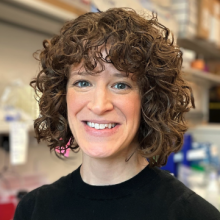
I am a PhD candidate in the Department of Microbiology & Immunology at the University of Minnesota. I work in the lab of Dr. Ingunn Stromnes, PhD. I have a B.S. in Zoology from the University of Wisconsin – Madison, and a M.S. in Cell & Gene Therapy from University College in London, UK.
My research focuses on genetic engineering of CD8 T cells for novel and effective treatment of pancreatic cancer. CD8 T cells are a crucial component of the immune system that fight off foreign viruses and bacteria, as well as our own cells that have become cancerous. While pancreatic cancer is very good at shutting down the T cells that have made their way into tumors, decades of research have enabled us to manipulate T cell DNA in ways that may improve their functionality and persistence in the solid tumor microenvironment (TME). I am engineering tumor-specific T cells to continuously produce different signaling molecules called cytokines and screening for improved T cell fitness, potential TME remodeling, and other beneficial effects in the Stromnes Lab’s pancreatic cancer mouse models.
Pancreatic cancer has the highest mortality rate of all major cancers with a five-year survival rate of 10%. Its lethality is largely attributed to early metastasis, late diagnosis, and therapeutic resistance. This patient population is in dire need of effective treatment options and I hope my research efforts will facilitate their development.
I will use the generous ARCS Foundation funding for necessary research reagents and conference travel.
My long-term career goal is to oversee immune cell therapy development for immuno-oncology clinical trials in academia or industry.
Outside of my research, I enjoy traveling to new places, eating delicious food, and spending time with my husband and 3 young/amazing/filthy children!
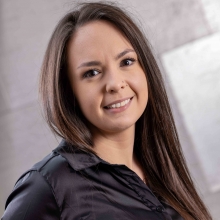
I am a PhD candidate in the Department of Biochemistry, Molecular Biology and Biophysics/Medical School/Biological Sciences at the University of Minnesota. I work in the lab of Paul D. Robbins. I have B.S. in Biochemistry from the University of Wisconsin-Madison.
Age is a critical risk factor for the development of multimorbidity of chronic diseases. Numerous studies investigating biochemical changes associated with progressing age have identified multiple drivers of aging including genomic instability, epigenetic remodeling, cellular senescence, and others. These hallmarks are highly interconnected and are thought to be primarily driven by persistent activation of DNA damage and other stress signaling mechanisms that lead to alterations in epigenetic marks and, concomitantly, aberrations in gene transcription that lead to the emergence of harmful aging phenotypes. Further, epigenetic mechanisms contribute to the complexity of targeting aging phenotypes by driving heterogeneity within aging cell populations leading to varying dependencies on regulatory program networks hindering the efficacy of current geroprotective agents. However, ectopic expression of the Yamanaka factors has demonstrated that partial reprogramming for the purpose of cellular rejuvenation downregulated aging phenotypes, restored tissue homeostasis and extended lifespan by means of transcriptional and epigenomic rejuvenation to a younger profile. I aim to better characterize the heterogeneity found in young, aged, and partially reprogrammed cell populations to identify critical epigenetic modulators involved in the development of these cellular phenotypes for the identification of new therapeutic targets and compounds aimed to extend healthspan and simultaneously delay the onset of many chronic diseases.
The world's health organization anticipates that most of the world's population will live beyond 60 years of age with the population of people aged 80 years or older expected to triple by 2050. This becomes especially important upon the understanding that advancing age is recognized as one of the greatest risk factors associated with the development of chronic disease and multimorbidity. The correlation between age and prevalence of chronic disease leads us to believe that developing therapeutic strategies that target many cellular and molecular mechanisms of aging, like epigenomic modulation, may simultaneously delay the onset of many chronic diseases through healthspan elongation. Geroprotective agents would then serve to prevent the expected increase in socioeconomic burden associated with an ever-aging population and improve the quality of people's lives later in life.
I anticipate using this award largely to for additional hands-on technical and bioinformatic training that would help me advance the analysis of multi-OM IC approaches used in my studies for characterization of various aged and rejuvenated tissues and cell types.
During my graduate career, my goal is to master the execution and analysis of up-and-coming OMIC strategies and develop expertise in aging, cellular senescence, epigenetic modulation, and therapeutic discovery. While my post-graduation plans are under debate, my ultimate career goal is to discover or improve a life-changing drug and be a key driver in helping it reach the hands of those who need it.
I am a first generation American with parents from both the UK and the Philippines. Growing up, I developed a keen interest in plants and phototropism which led me to pursue research in plant pathology at the University of Wisconsin-Madison. After, I ventured into industry where I worked as an analytical chemist optimizing chromatography-based methods for analyte quantification. I have since re-joined academia in pursuit of my PhD specializing in aging and healthspan elongating gerotherapeutics. In my free time, I collect a variety of exotic house plants, I also enjoy going to concerts, Cycle Bar classes, and shopping.
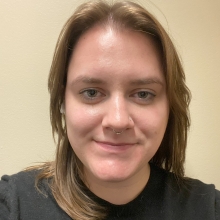
I am a PhD candidate in the Department of Civil Environmental and Geo-Engineering at the University of Minnesota. I work in the lab of Dr. Boya Xiong. I have B.A. in Chemistry from Hamilton College.
My work focuses on identifying the degradation products of polymers when they are exposed to environmental elements such as sunlight. Polymers are large molecules, but when they enter the environment, they get smaller through chemical reactions, and therefore more mobile and potentially toxic. I work to understand what polymers, such as plastics, are turning into in environmental conditions.
Our current society is dependent on polymers, but we do not have a full picture of the effect of them on ecosystem or human health. My research helps bridge that gap and inform the design of sustainable polymers.
I will use this award to help provide key research tools, such as a computer, as I move through my degree.
I want to use my career to tackle identifying and tracking the transformations of pollutants in the environment in the pursuit of setting the best possible regulatory practices to the release of these pollutants.
In my free time I enjoy doing various crafts, reading, and getting outside. I have one cat, Ginny, and occasionally I will foster cats from local rescues until they get adopted.
I am a PhD candidate in the Department of Immunology at the University of Minnesota. I work in the lab of Thomas Griffith. I have a B.S. in Molecular and Cellular Biology, and Biochemistry from the University of Arizona.
Sepsis, a dysregulated host response to a systemic microbial infection, causes 1 in 3 deaths at hospitals, and is a burden that has no successful clinical treatment. It also has associated long term effects on the immune system such as lymphopenia and immune paralysis. With the guidance of Dr. Thomas Griffith, I am investigating the consequences of sepsis on the immune cells, specifically T-cells. By receiving clinical blood samples from hospitalized septic patients, I evaluate the immune responses upon restimulation of those immune cells in comparison to healthy patient samples. While sepsis is a deadly condition the patient faces, there are long term impacts such as immune-paralysis and increased risk of morbidity upon subsequent infections if the patient recovers. I therefore strive to determine if dysfunctional and/or ineffective T-cells are contributing to increased risk of reinfection.
Sepsis is a non-discriminatory condition. While generally seen in older (age 65+) and immunocompromised individuals, it also can be seen in pediatric and younger adults. Therefore, there are two arms to how my studies can contribute to better understanding of sepsis: analysis of T-cells circulating within septic patients during their hospitalization and evaluating their functionality. This will determine if T-cells are dysregulated during the host response. The other arm includes the long-term effects of sepsis on T-cells and analyze which aspects of protection T-cells provide are impaired. This will be important in understanding why individuals post sepsis are prone to reinfection, and if certain precautions may need to be taken to better protect them (additional adjuvants for administering vaccines to post septic individuals).
The funds from this award will be used to cover the cost of important reagents needed to examine the phenotype and function of T cells obtained from the blood of sepsis patients and health control donors. These reagents include antibodies, assay kits, and core facility fees. For example, I plan to use cutting-edge technology (with the help of UMN core facilities) to assess the functionality of T cells from sepsis patients at the single-cell level. This assay will include conditions designed to test the extent to which administration of immunomodulatory agent can boost the functional capacity of T cells.
My current sight is to work at a post-doctoral position in industry after receiving my Ph.D. I’m open to expanding my understanding of clinical therapeutics and their mechanisms.
Originally from Arizona, I try to maintain a physically active lifestyle, but only in air-conditioning. I go indoor bouldering, rock climbing, swimming, and walks around the lake if the weather is nice. My favorite fiction author is Brandon Sanderson and I also enjoy cooking.
